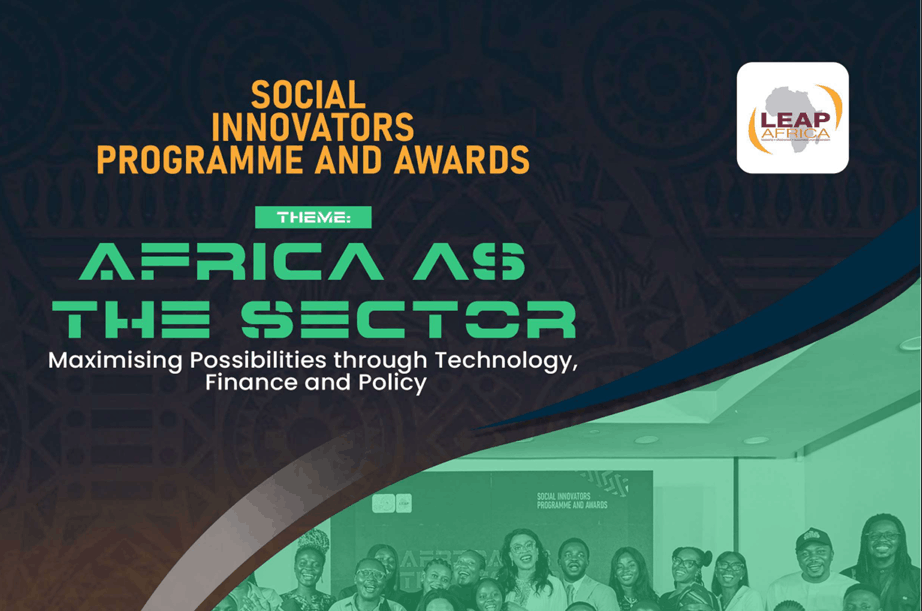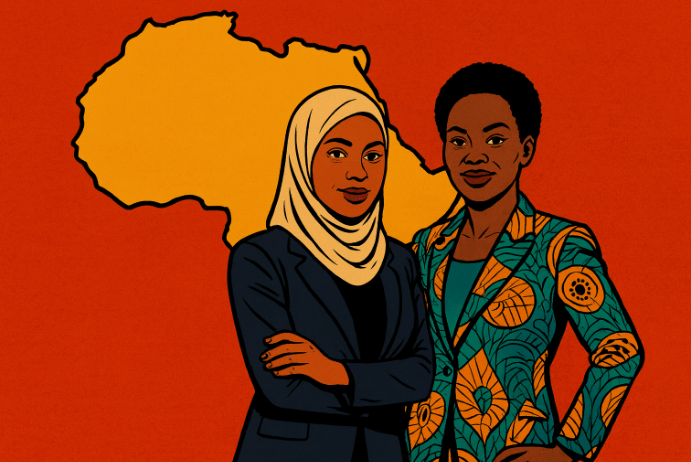For many young girls in Africa, the little glimpse of hope they have to gain an education is threatened and often stolen by several factors. Poverty, abuse, gender inequality are some of the challenges that have made education seem like a distant prospect for them Many girls drop out of school because they are unable to afford schools fees, some are forced to marry older men and end up becoming young mothers; their futures look bleak with no hope in sight or a way out. The pertinent question remains, how can the future of the African girl child be protected?
Investing in girls’ education could ensure that they can complete their academic pursuit, however, a lot remains undone. They should be able to easily transition to either higher education, worthwhile employment or entrepreneurship. The first critical step in securing the future of any girl child is to provide the needed guidance and motivation to achieve their dreams and secure a great future.
On a recent trip to Ghana to monitor the Transformative Leadership Program funded by the Mastercard Foundation, the team interacted with students from different schools in selected regions. The resilience and confidence displayed by the teenage girls were inspiring, they spoke passionately about their desires to become successful, even while dealing with emotional and domestic issues that could derail and suppress their promising future. At the time of this visit, they were preparing for their WASSCE (West African Senior School Certificate Examination). Although they seemed stressed about the forthcoming examination, they were determined to achieve excellent grades. During some of the discussions, they expressed their opinions on career development and how their teacher has helped make career choices. They asked questions about choosing courses in the university and knowing how to align their passions with university degrees and career paths. The LEAP team encouraged them to keep learning more about themselves and paying attention to what piques their interest. The girls also referred to the stories of the influential people they had read about in their manuals and expressed excitement at the amazing achievements that these people were able to accomplish despite the hindrances they faced.
On that account, the need for guidance and motivation at the adolescent stage of a young girl’s life is important and should be taken seriously by teachers, parents and school administrators. The decisions these young girls make influences the kind of impact they will have in their communities and the world in the future. Within the Mastercard project, teachers are not just focusing on content knowledge, they also ensure that the girls think critically, develop innovative solutions and collaborate. In this process, there is an assurance that the girls are empowered to succeed with the leadership and life skills they are equipped with for the 21st century. Preliminary learnings also reiterate the need for young people to have career guidance at an early stage of their lives. It also reinforces the need for young people to know about influential people who have been able to make a great impact in their communities so that they can, in turn, be motivated to do better.
Today, some distinguished African women are taking giant strides and blazing the trail of impact in their communities. Angelina Makore is an inspiring young leader from Zimbabwe who campaigns for the health and wellbeing of women and girls in her country. At the age of 14, she was almost married off; as a result of this, she became an activist and founded Spark R.E.A.D (Resilience, Empowerment, Activism and Development). Since then she has rescued victims of sexual abuse and child marriage. Young girls should be informed about women like Angelina who seek to help those who cannot help themselves and be inspired by the impact they make in their communities.
Akosua, whom the LEAP Africa team met during the visit to Ghana, aspires to help her community with food shortage by building a shopping mall, where people can have easy access to basic amenities that they require. She saw the hardship that her mother and members of her community endured to bring foodstuff because of the distance between their community and the city. Akosua has a good teacher who is responsive to her interests and facilitated a positive outlook on herself and life in general. Despite the challenges that she is faced with, she is determined to persevere through life’s hurdles to give people in her community a better life. Before joining the Mastercard TLP, Akosua lacked the self-confidence and motivation to actualize her dream, but with lessons on self-confidence and leadership, she is inspired to believe in herself enough to pursue her dreams. This also demonstrates the role of teachers as effective leaders who in turn can motivate their students to become transformative leaders. With adequate support like the Mastercard Transformational Leadership Program provided for the teachers in Ghana, they can go the extra mile in executing their duties as influential leaders, assisting girls to think through critical decisions, enhance their self-awareness, encourage them to take ownership of their growth and help them remain focused on their goals.
This brings to fore the importance of providing support and provisions for girls to inspire them to make good career choices and impact their communities positively. Often, they have the desire to break out of the cycle of poverty system and contribute to the development of their communities, but they are hindered by hardships. At the barest minimum, having a supportive and transformative teacher is important as it impacts the academic and non-academic learning outcomes of the girlchild. The reality is that the educational system should be re-assessed and examined to ensure that it is non-discriminatory, providing adequate support that accommodates the lived realities of the girl child.
In conclusion, the girl child plays a crucial role in shaping the continent’s growth. Education is the right of every girl child in Africa, it is the key to transforming their lives and their communities. With access to education and other support, girls are allowed to develop their full potential and play productive roles in their communities. Although some policy changes have been implemented to improve girl-child education, there is still so much to be done with a focus on teachers. Teachers are at the front line of the educational system and their ability to impact the young girls they come across is highly dependent on their capacity as transformative leaders. This is, therefore, a call to teachers to ensure that girls receive not just quality education and practical skills, but also motivation and guidance to help them navigate their future with optimism. The girl child has a stake in Africa’s future hence, they should be equipped with skills, knowledge and mindsets to leap over limitations and launch out to achieve their dreams.
By Dr. Aderonke Folorunsho



